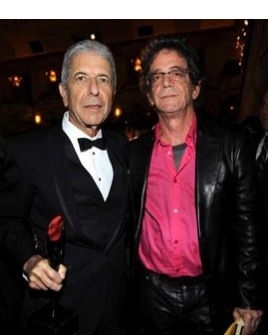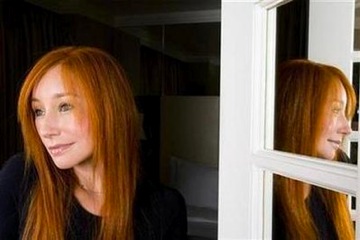The Girlfriend Experience: that's what professional actors are for
I finally watched Steven Soderbergh's The Girlfriend Experience (only $6.99 to rent on Amazon, now that it's also out in theaters!) More than enough has already been said about this movie, mostly about casting real-life porn star Sasha Gray to play an expensive prostitute, and how the buying and selling of people and relationships runs through many aspects of modern life.
I mostly liked the movie, especially the structure that jumps back and forth through time, returning to a couple of key scenes that grow more resonant as the audience learns more about what happened before and after. Soderbergh is really good at slow, deliberate revelations about his characters, and creating a bunch of little snapshots that add up to something bigger than the sum of the parts.
This movie works in the same way that other smaller movies of his do, like Full Frontal or The Limey: really nicely shot, no wasted scenes, repetition of important moments, building up to a few really amazing scenes. You hardly knew you were as into it as you were.
But: it would have worked so much better if he had cast a real actress instead of Sasha Grey. The movie got more attention that it probably would have, but this is pure stunt casting. It helped make some kind of interesting meta-points about buying and selling people and the sex industry, but didn't help the movie at all.
Sasha Gray is great at playing cold and distant, and her character spends most of the movie with clients wearing an emotional suit of armor. Her clients are ostensibly paying for the "girlfriend experience", but what they actually want is a pretty woman who will sit quietly and listen to them talk, speak only when spoken to, and when she does speak, agree with everything they say. The sex part is almost incidental. Sasha Grey is great in these scenes at conveying the blank receptivity that the clients want.
What she's less good at is conveying that there's more going on beneath the surface. It makes sense for the clients to see her as a pretty, reflective screen onto which they can project whatever they're paying for. But in order for the audience to care about her, we need to see that she's a real person underneath the shiny exterior. She needs to show layers, where the characters in the movie see one thing, and the audience sees something more.
This is why we have professional actors. But even the other inexperienced actors in the movie are better at this than Sasha Gray is. There are a few scenes of her personal trainer boyfriend Chris, played by Chris Santos, where we watch him talking to his clients, and we can see him projecting one thing to them, while allowing the audience to see more happening under the surface. One client, attempting to have an honest conversation with his hired trainer, asks "what are you doing this weekend?" Chris' reaction is more layered than just about anything Sasha Gray does in the whole movie.
Not to say that she can't play anything other than detached blankness. Late in the movie, when her character experiences closeness, then sadness and disappointment in some unguarded moments with another character, she's great at that. But those scenes don't mean that much because we haven't seen any real human emotion in her until then.
If Soderbergh hadn't gone for the stunt casting choice, what pretty young actress could he have cast? I think someone like Evan Rachel Wood would have been good--think of those early scenes in Thirteen when she's clearly conflicted about the questionable stuff her new bad-girl friend is getting into. Or in The Wrestler, when we can see the difference between how she's acting toward Mickey Rourke and how she actually feels on the inside.
Or maybe someone from Vanity Fair's Young Hollywood issue, like Summer Bishil. Or Emma Roberts, Eric Roberts' daughter. She's probably good, right?
Casting someone like Sasha Grey makes the movie feel more like an elaborate conceptual experiment than a movie we're supposed to watch and respond to for what it is in itself. Like he wanted it to be critic-proof. As Owen Gleiberman pointed out, there are a number of unsubtle jabs at critics in the movie, though Soderbergh denies they're there.
You can say that he cast Sasha Gray to get more publicity, and to draw a connection between service work in which people use each other as substitutes for something else, and movie audiences who want to believe that actors' performances are real. OK, well, it was still a bad choice.



